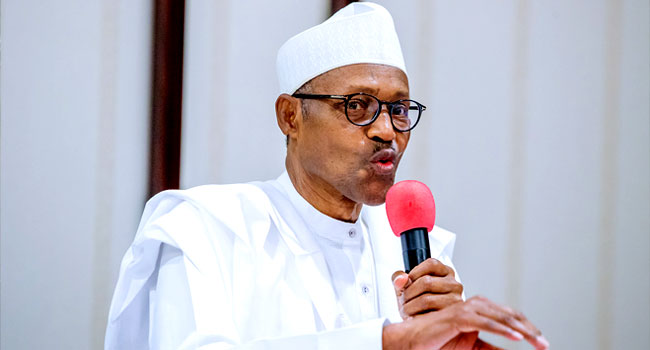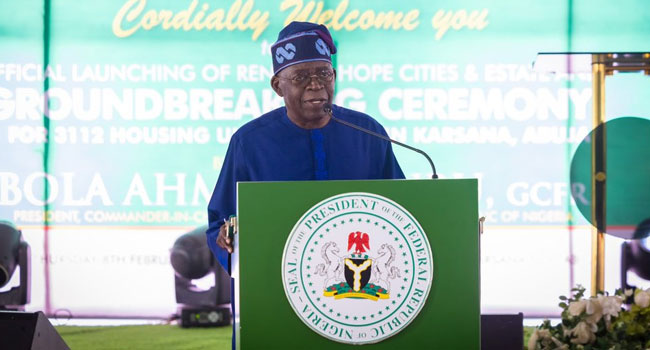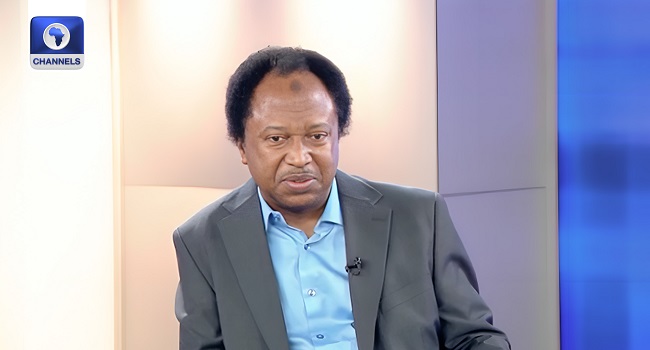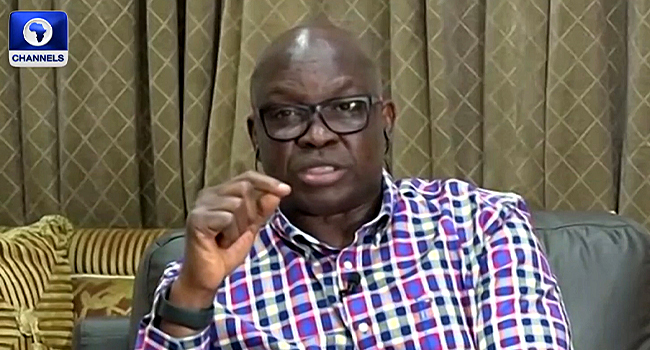
President Muhammadu Buhari says he is hopeful that the country will be better than it is.
He stated this at the end of the Presidential Policy Dialogue meeting which held on Thursday at the Presidential Villa in Abuja.
The President noted that the 10 strategic initiatives proposed at the meeting would be considered for adoption by his administration in the next four years.
They include addressing the challenge of security, by working with the private sector in the country.
READ ALSO: Gbajabiamila Appoints Chairmen Of Reps Committees
The meeting also proposed to tackle the problems in the power sector, stimulate significant investment and industrialisation of the agricultural sector, and aggressively improve the ease of doing business.
Another strategic initiative was to launch the consumer credit scheme in the banking sector which would grant citizens an access long term and affordable mortgages.
According to the President, these proposals will be discussed and finalised with the incoming ministers who are being screened by the Senate.
He also urged the government in various states of the Federation to fulfill their part, particularly in health and education sectors.
Read the President’s full speech below:
CLOSING REMARKS BY H.E MUHAMMADU BUHARI, PRESIDENT OF THE FEDERAL REPUBLIC OF NIGERIA AT THE PRESIDENTIAL POLICY DIALOGUE SESSION HELD AT THE STATE BANQUET HALL ON 25TH JULY 2019
“I will start by thanking you all for making the time to be here with us over the past two days to discuss how we can all come together to build a better Nigeria.
“From the presentations, discussions and exchanges, I could clearly see the patriotism and commitment you all have for this country. This gives me hope that we will surely leave a better Nigeria for future generations to come.
“During these two days, several case studies were presented on how different countries successfully addressed various issues confronting them.
“I listened carefully and attentively throughout all the presentations and the subsequent exchanges in the question and answer sessions. What was very obvious is that the journey for each country was different.
“A good example is on infrastructure development. The path adopted by Ethiopia is from my understanding, the complete opposite of Brazil.
“This is also the same when it comes to agriculture, where Brazil adopted large scale mechanised agriculture while Ethiopia took the out-grower and contract farming model.
“The same can be said when you compare the oil and gas policies of Saudi Arabia, Russia and the United States as shown in one of the presentations.
“Like my brother, the former Prime Minister of Ethiopia mentioned, the only right answer is the one that is tailored to your specific needs. This means as we benchmark Nigeria against other countries, we must not lose sight of the laws, regulations, geography, culture, history and many other factors that make us Nigerians.
“Some of you may remember me saying some years back that what we need are “made in Nigeria solutions for our uniquely Nigerian problems”.
“For example in agriculture, we partnered with the Kingdom of Morocco to revive dozens of abandoned fertiliser blending plants across the country. We introduced the Anchor Borrowers’ Programme that provided cheap credit to small scale farmers to buy the right inputs that will lead to enhanced yields.
“We developed the food security programme that provided capital to large scale food processors to enable them to off-take the grains produced by these farmers. And finally, we introduced policies that restrict imports to support the consumption of locally produced food items.
“Through these interventions, we were able to systematically address some of the value chain issues confronting agriculture. This led to significant job creation in the rural economy and savings in our foreign reserves. They also led to a lowering of food prices.
“On infrastructure, through the Presidential Infrastructure Development Fund, we are investing in strategic projects across the country such as the Second Niger Bridge, Lagos Ibadan Express Way and the Abuja – Kaduna – Kano highway.
“As you can see, in agriculture, government was just an enabler. We linked the farmers to input suppliers and off-takers while providing extension services. In infrastructure development, we decided to build the roads ourselves for now. As a nation, the limited experience we have on road concessions have not been very positive. But that said, we will continue to explore.
“As we come to the end of this Presidential Policy Dialogue Session, the key proposals made by the experts are for the Federal Government to consider the following strategic initiatives over the next four years:
“Stimulate significant investments in the industrialisation of agriculture;
“Develop policies that will facilitate private sector participation in infrastructure projects;
“Introduce policies and regulatory changes that will unlock growth potentials in the petroleum sector – both upstream and downstream;
“Aggressively improve the ease of doing business by reducing bureaucracy and improving inter-agency collaboration;
“Providing incentives for investors especially in agriculture and power sectors;
“Facilitate construction of mass and affordable housing to propel economic growth and reduce the massive housing deficit;
“Launch of a consumer credit scheme with the Banking Sector for citizens to have access to long term and affordable mortgages and consumer credit;
“Address our security challenges by working in collaboration with the private sector;
“Fix the power sector by addressing some of the regulatory uncertainties and operational shortcomings of the key players;
“Drive efficiency in public service delivery through realignment of the Ministries, Departments & Agencies (MDAs) and implementation of e-governance solutions;
“As you are aware, some of my ministerial nominees are currently undergoing their screening at the National Assembly. God willing, the proposals from this session will be discussed and finalised with them in the coming weeks as they take on their portfolios.
“Although most of the proposals were targeted at the Federal Government, I also want to remind the State Governors to do their part especially in the areas of education and health care, which are within their constitutional responsibilities.
“Our collective goal is to implement initiatives that will lift our citizens out of poverty through mass employment and social safety nets. This is achievable with the right fundamentals in place. We must all keep in mind that a successful economy is one where prosperity is felt by the majority.
“In conclusion, I would like to once again thank members of our party, developmental partners, captains of industries and private sector representatives, industry experts, and all the other speakers and panel members. We look forward to partnering with you on our journey to create a desirable future for our people.
“I would also want to specially thank former Prime Minister of Ethiopia for making the time to be here with us and share his experiences. Your presence has been invaluable and, without any doubt, has helped make the event a great success.
“May Almighty God grant you safe journey to your respective destinations.
“I thank you all.”




